Moral lesson understanding Reading Comprehension Worksheets for Ages 6-8
5 filtered results
-
From - To
Introduce your child to important life lessons with our Moral Lesson Understanding Reading Comprehension Worksheets, tailored for ages 6-8. Each worksheet features engaging stories designed to enhance comprehension skills while teaching vital moral values such as honesty, kindness, and responsibility. Through thought-provoking questions and activities, kids will develop critical thinking and empathy, fostering a deeper understanding of ethical concepts. Perfect for both classroom and home use, these worksheets make learning enjoyable and meaningful. Encourage your young reader to build character and comprehension simultaneously with our expertly crafted resources. Start developing virtuous and literate individuals today!
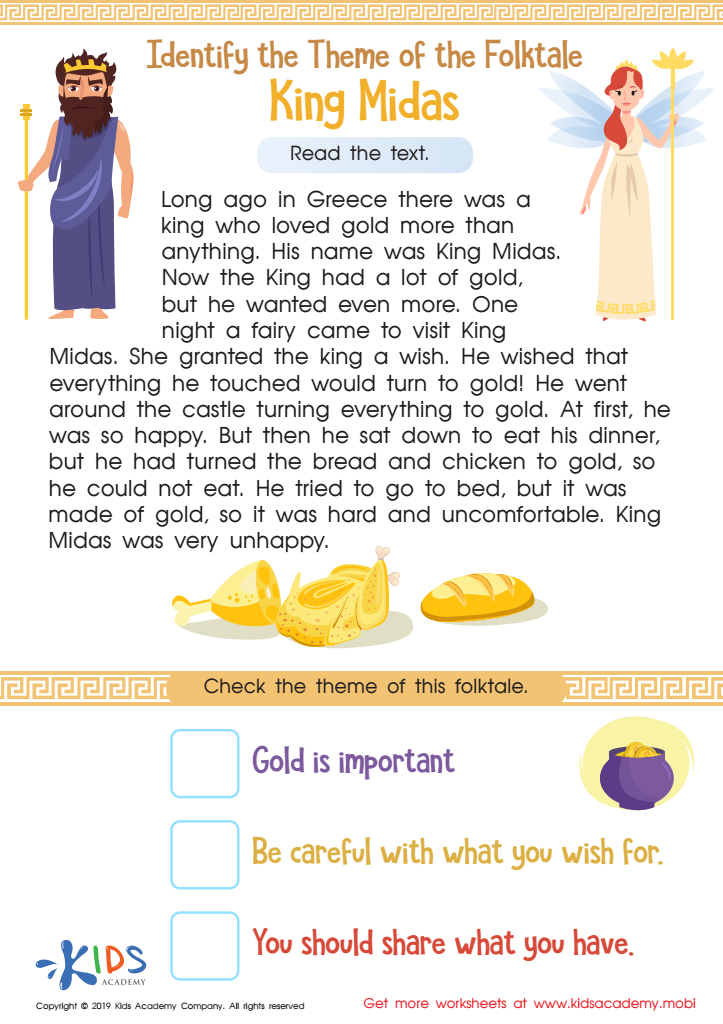

King Midas Worksheet
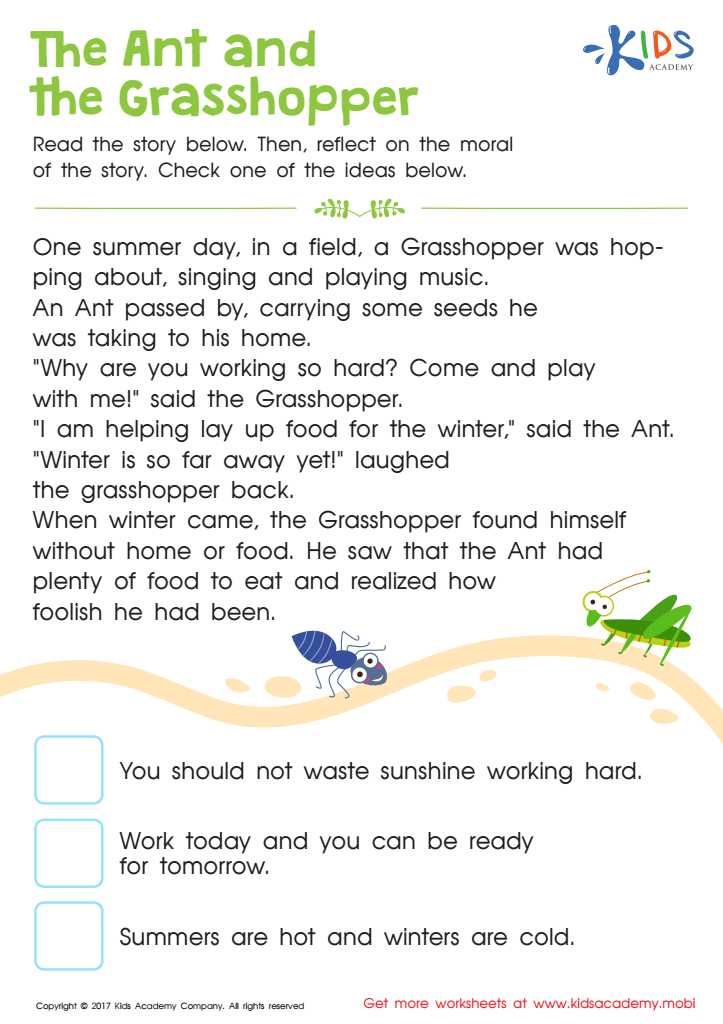

The Ant and The Grasshopper Printable
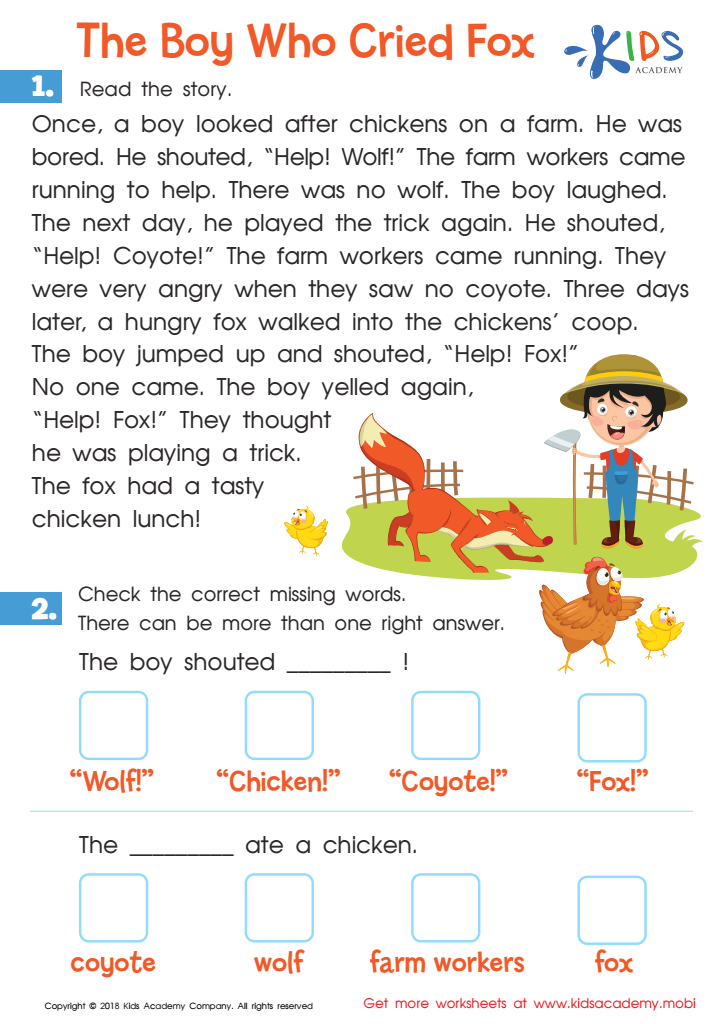

The Boy Who Cried Fox Worksheet
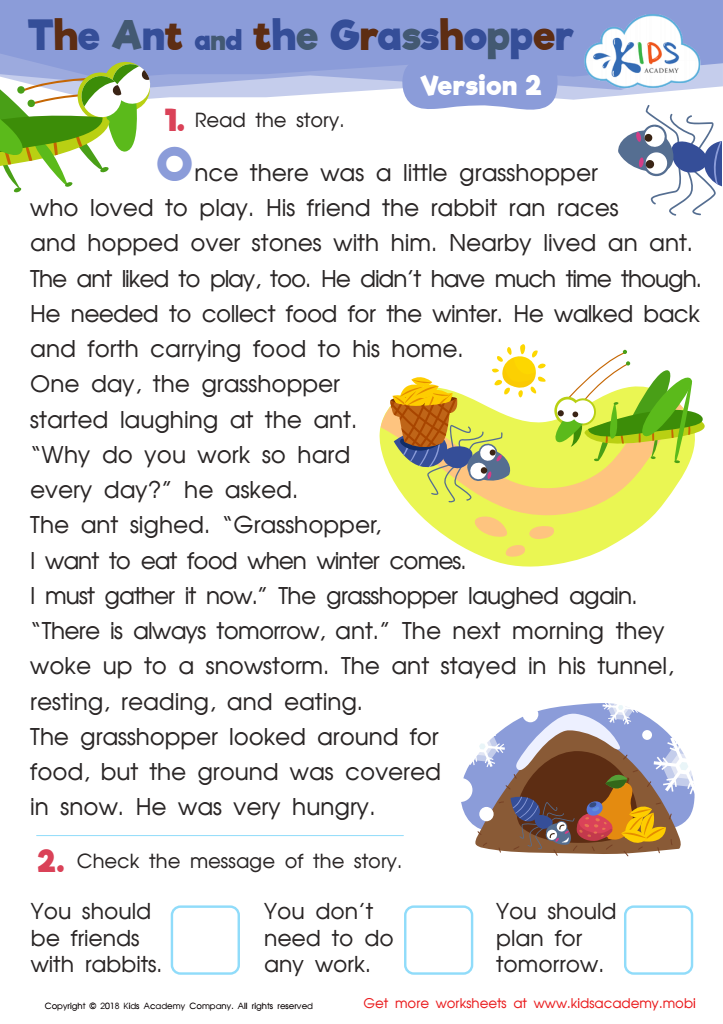

The Ant and The Grasshopper Version 2 Worksheet
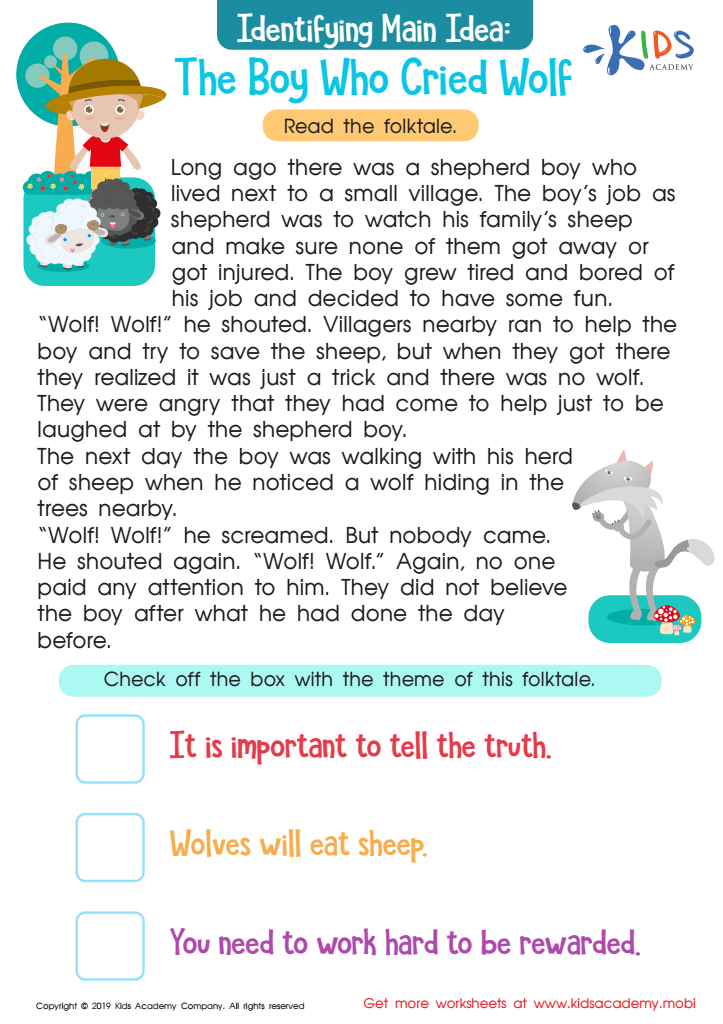

The Boy Who Cried Wolf Part 2 Worksheet
Engaging children aged 6-8 in reading comprehension that includes a focus on moral lessons is critical for several reasons. At this developmental stage, children's cognitive and emotional skills are rapidly maturing, making it an ideal time to lay the foundation for strong ethical and moral behavior. Reading stories with moral lessons helps children understand essential values, such as honesty, kindness, fairness, and empathy, which are crucial for forming healthy relationships and social interactions.
Moral lesson understanding through reading comprehension also encourages children to think critically about the consequences of actions—both their own and those of others. This nurtures their ability to make thoughtful decisions and enhances their problem-solving skills. Additionally, when children identify with characters and situations in stories, it fosters empathy and enables them to see the world from multiple perspectives.
Teachers and parents play a vital role in guiding discussions around these lessons, encouraging children to articulate their thoughts and deepening their understanding of right and wrong. Furthermore, such comprehension activities can inspire meaningful conversations at home and school, reinforcing these values consistently in various contexts. Altogether, integrating moral lessons with reading comprehension for young children not only bolsters their academic proficiency but also cultivates a well-rounded, conscientious mindset that will serve them throughout their lives.

 Assign to My Students
Assign to My Students




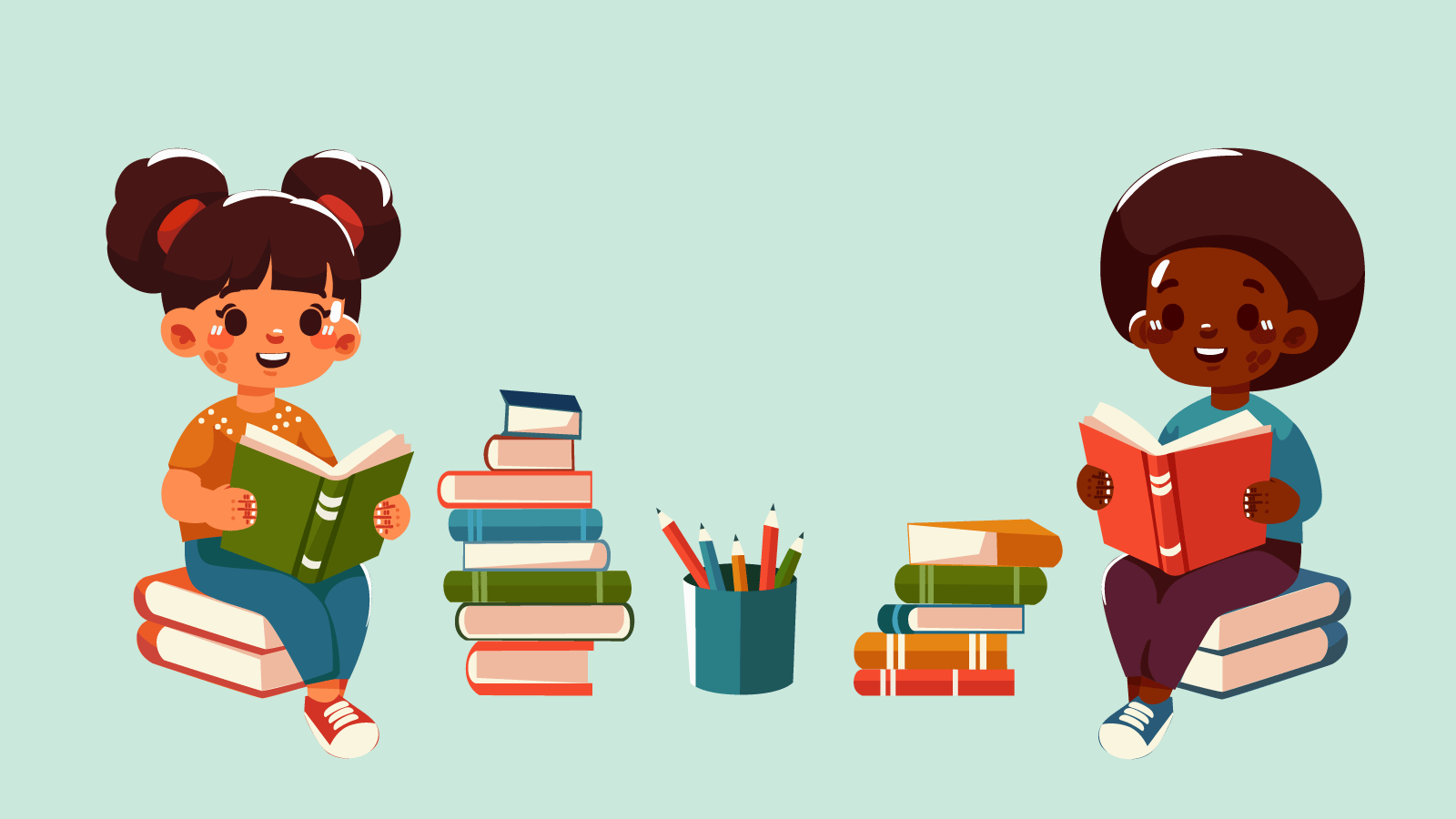


.jpg)








